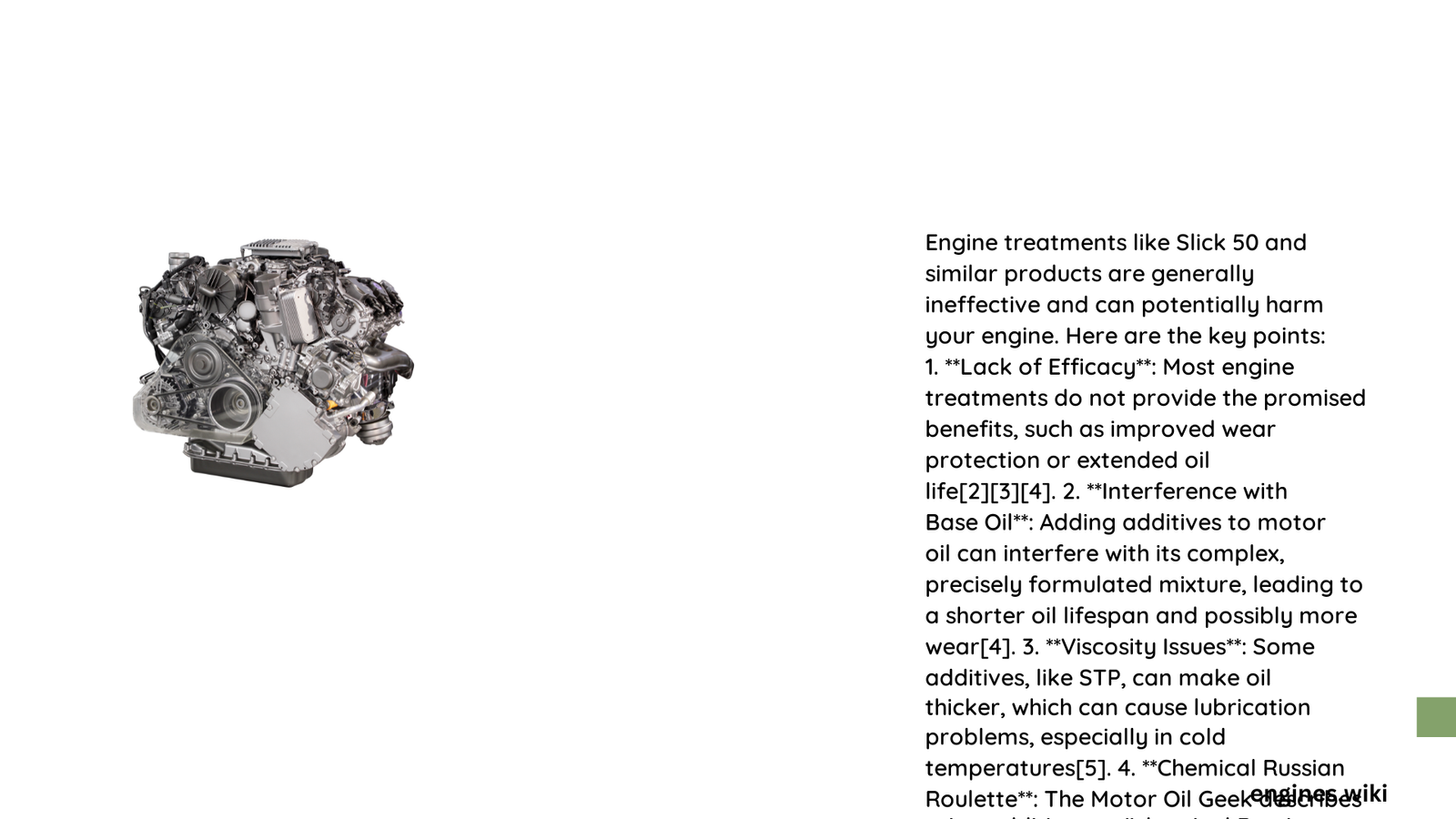Engine treatments have long been a controversial topic among automotive enthusiasts and mechanics. Vehicle owners constantly seek ways to improve engine performance, reduce wear, and extend engine life. Scientific research and empirical evidence reveal a complex landscape of potential benefits and risks associated with various engine treatment technologies, ranging from traditional PTFE additives to advanced nanomaterial solutions.
What Are Engine Treatments and How Do They Work?
Engine treatments are specialized chemical additives designed to:
– Reduce friction between moving engine components
– Improve overall engine performance
– Minimize wear and tear
– Enhance fuel efficiency
Performance Metrics: What Research Reveals
Nanomaterial Additives: Promising Results
| Additive Type | Performance Improvement | Wear Reduction |
|---|---|---|
| Carbon Nanotubes | Up to 30% Fuel Efficiency | 47% Wear Reduction |
| Hexagonal Boron Nitride | 18% Average Efficiency | 12% Friction Reduction |
Key Scientific Findings
- PTFE Additives Performance
- Friction reduction: 13.1%
- Horsepower increase: 5.3% to 8.1%
-
Fuel economy improvement: 11.8% under light load
-
Potential Risks of Engine Treatments
- Possible oil filter clogging
- Risk of increased metal contamination
- Potential long-term engine damage
Can Engine Treatments Truly Enhance Vehicle Performance?

Empirical Evidence Breakdown
Research indicates that engine treatments offer mixed results:
- Short-term Benefits:
- Immediate friction reduction
- Slight performance improvements
-
Temporary fuel efficiency gains
-
Long-term Concerns:
- Potential engine component damage
- Inconsistent performance across different vehicle types
- Variability in additive effectiveness
Expert Recommendations
Automotive engineers suggest:
– Choose high-quality synthetic oils
– Perform regular maintenance
– Consult manufacturer guidelines
– Use additives sparingly and cautiously
Factors Influencing Engine Treatment Effectiveness
Technology Variations
- Nanomaterial Additives
- Most advanced current technology
- Significant performance potential
-
Limited long-term data available
-
Traditional Chemical Additives
- Well-established but potentially less effective
- More predictable performance
- Lower cost compared to nanomaterial solutions
Practical Considerations for Vehicle Owners
Decision-Making Criteria
- Vehicle age and condition
- Manufacturer warranty implications
- Budget for potential repairs
- Specific performance requirements
Conclusion: A Nuanced Perspective
While engine treatments can offer some benefits, they are not a universal solution. Vehicle owners should:
– Conduct thorough research
– Consult professional mechanics
– Prioritize regular maintenance
– Approach additives with realistic expectations
Recommended Approach
- Use high-quality engine oils
- Follow manufacturer maintenance schedules
- Consider professional diagnostic assessments
- Evaluate individual vehicle needs
Final Thoughts
Engine treatments are not a magic solution but can provide marginal improvements when used correctly. Careful selection, understanding of your vehicle’s specific requirements, and professional guidance are crucial.
